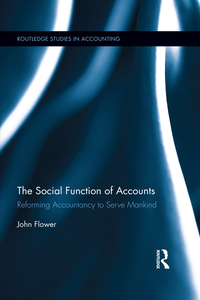Answered step by step
Verified Expert Solution
Question
1 Approved Answer
The following five transactions occurred in Year 3: First purchase (cash): 125 units @ $94 Second purchase (cash): 205 units @ $102 Sales (all cash):





The following five transactions occurred in Year 3:
- First purchase (cash): 125 units @ $94
- Second purchase (cash): 205 units @ $102
- Sales (all cash): 375 units @ $189
- Paid $13,350 cash for salaries expense
- Paid cash for income tax at the rate of 25 percent of income before taxes
Required a. Compute the cost of goods sold and ending inventory, assuming (1) FIFO cost flow, (2) LIFO cost flow, and (3) weighted-average cost flow. Compute the income tax expense for each method. b. Use a vertical model to show the Year 3 income statement, balance sheet, and statement of cash flows under FIFO, LIFO, and weighted average. (Hint: Record the events under an accounting equation before preparing the statements.)
The accounting records of Wall's China Shop reflected the following balances as of January 1, Year 3: Cash Beginning inventory Common stock Retained earnings $18,900 20, 240 (220 @ $92) 15,800 23,340 The following five transactions occurred in Year 3: 1. First purchase (cash): 125 units @ $94 2. Second purchase (cash): 205 units @ $102 3. Sales (all cash): 375 units @ $189 4. Paid $13,350 cash for salaries expense 5. Paid cash for income tax at the rate of 25 percent of income before taxes Required a. Compute the cost of goods sold and ending inventory, assuming (1) FIFO cost flow, (2) LIFO cost flow, and (3) weighted average cost flow. Compute the income tax expense for each method. b. Use a vertical model to show the Year 3 income statement, balance sheet, and statement of cash flows under FIFO, LIFO, and weighted average. (Hint: Record the events under an accounting equation before preparing the statements.) Complete this question by entering your answers in the tabs below. Required A Required B1 Required B2 Required B3 Compute the cost of goods sold and ending inventory, assuming (1) FIFO cost flow, (2) LIFO cost flow, and (3) weighted- average cost flow. Compute the income tax expense for each method. (Do not round intermediate calculations. Round your answers to nearest whole dollar amount.) FIFO LIFO Weighted Average Cost of goods sold Ending inventory Use a vertical model to prepare the Year 3 income statement under FIFO, LIFO, and weighted average. (Do not round intermediate calculations. Round your answers to nearest whole dollar amount.) WALL'S CHINA SHOP Income Statements For the Year Ended December 31, Year 3 FIFO LIFO Weighted Average Salaries expense Income before tax 0 0 0 Use a vertical model to prepare the Year 3 balance sheet under FIFO, LIFO, and weighted average. (Do not round intermediate calculations. Round your answers to nearest whole dollar amount.) WALL'S CHINA SHOP Balance Sheets As of December 31, Year 3 FIFO LIFO Weighted Average Assets Total assets $ 0 $ 0 $ 0 Stockholders' equity Total stockholders' equity O $ O $ 0 Use a vertical model to prepare the Year 3 statement of cash flows under FIFO, LIFO, and weighted average. (Do not round intermediate calculations. Round your answers to nearest whole dollar amount. Amounts to be deducted should be indicated with a minus sign.) WALL'S CHINA SHOP Statements of Cash Flows For the Year Ended December 31, Year 3 FIFO LIFO Weighted Average Cash flows from operating activities 0 0 0 Net cash flows from operating activities Cash flows from investing activities Cash flows from financing activities Net change in cash 0 0 0 Ending cash balance $ 0 $ 0 $ 0Step by Step Solution
There are 3 Steps involved in it
Step: 1

Get Instant Access to Expert-Tailored Solutions
See step-by-step solutions with expert insights and AI powered tools for academic success
Step: 2

Step: 3

Ace Your Homework with AI
Get the answers you need in no time with our AI-driven, step-by-step assistance
Get Started


